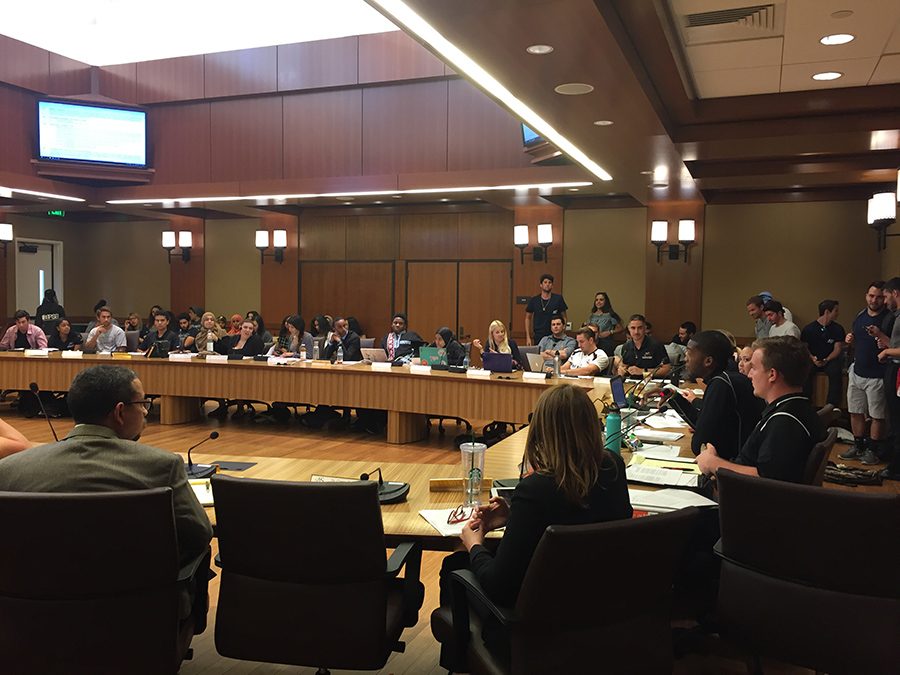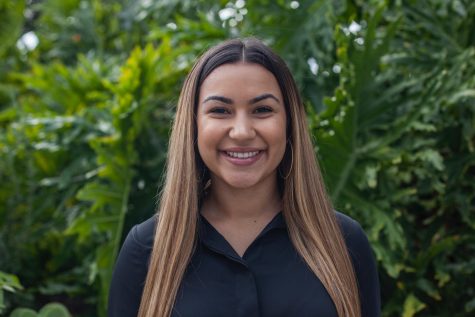Associated Students University Council voted to pass a resolution to condemn anti-semitism on April 12.
The meeting began with public comment from SDSU students, alumni and staff voicing their concerns and opinions about resolutions to condemn anti-Semitism, retire the SDSU mascot and moniker and fight food insecurity through expansion of the A.S. food pantry.
A.S. University Affairs Board Chair Chimezie Ebiriekwe said the amendments that were made to the resolution were items previously taken out by the Campus Community Commission.
The University Council amended the resolution to include “the three Ds” – delegitimization, demonization and double standards regarding Israel – as forms of anti-Semitism.
The resolution passed 18-4, with five abstentions.
During the meeting, the University Affairs Board also adopted the United States Department of State definition of anti-Semitism.
This definition establishes anti-Semitism as, “a certain perception of Jews, which may be expressed as hatred toward Jews. Rhetorical and physical manifestations of anti-Semitism are directed toward Jewish or non-Jewish individuals and/or their property, toward Jewish community institutions and religious facilities.”
The resolution says the U.S. Department of State recognizes anti-Semitism can come from language and actions related to Israel, but criticism of Israel that is at the same level of criticism of other countries is not anti-Semitic.
The resolution says it was not created to restrict free speech, academic freedom or participation in social activism.
“Its only purpose is to define the line between civil, academic debate and hate speech,” it reads.
The resolution lists incidents of anti-Semitism that have occurred at SDSU and universities across the country.
It reads that blatant anti-Semitism must never be tolerated and Jewish people have a collective right to self-determination.
College of Arts and Letters representative Nick Elliott said he voted in favor of the resolution.
“When it was first presented (to the campus community commission), there were flaws,” he said.
Elliot said he encouraged sending the resolution to the Campus Community Commission.
“When Curtis (Copin) and Josh (Miller) turned it back to University Council, it was definitely in much better shape,” he said.
PSFA representative Samantha Ledesma said she voted against the resolution.
She said she would have voted in favor of the resolution if they had kept the original edits.
“I think we definitely undermined other students on this campus,” she said.
Students for Justice in Palestine President Mustafa Alemi said the main issue is whether or not calling out Israel for human rights violations, criticizing Israel or supporting BDS is a form of anti-Semitism.
He said he is curious as to what the impact of the resolution will be.
He said the resolution called for Associated Students to not facilitate or promote any events that are anti-Semitic, which he said it already shouldn’t do.
“Associated Students resolutions are not really binding or super impactful on certain things,” Alemi said. “It will have a positive impact in that hopefully Jewish students feel safer on campus but I mean A.S. is not patrolling the streets or anything.”
Ebiriekwe said the resolutions are “strong recommendations” to the university administration.
The A.S.Board of Directors met on April 17 and voted against reverting back to the version of the resolution passed by the Campus Community Commission. They also voted not to name Students for Justice in Palestine in the resolution.
The University Council will vote on the remaining two resolutions on April 19.









